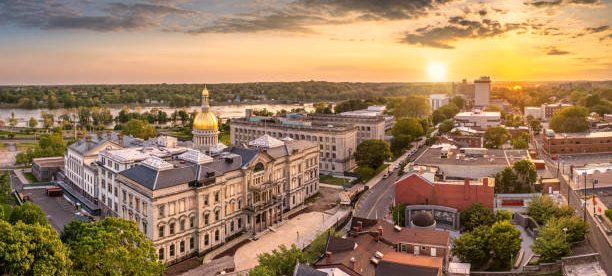The Continued Attempts of Environmental Justice in New Jersey

In August 2020, Governor Phil Murphy signed S232/A2212, also known as the New Jersey Environmental Justice Law, which aims to address “Disproportionate environmental and public health impacts of pollution on overburdened communities,” (Senate and General Assembly of the State of New Jersey, 2018). This law aims to make it harder for polluting facilities to receive permits and create more regulations in order to limit the amount of pollution produced. The Environmental Justice Law attempts to help those in marginalized communities and low-income areas in order to mitigate the effects of polluting facilities and future health risks.
The effectiveness of this law stems from the compliance of the polluting facilities and the implementation of the laws within the affected communities but there are still problems that remain to be in effect. Moving forward, this article focuses on the polluting factors that are harming the Trenton area and community and how there are organizations that exist in order to advocate and fight against these injustices. Additionally, the city of Trenton is used as a focus for this article because of its importance within New Jersey and because of the issues that have arisen over the years. Also, the community of Trenton is considered an overburdened community and is directly affected by this law. As seen on the map below by the Department of Environmental Protection.

This community is also being directly affected by redlining on many levels specifically within environmental effects. Below on the map from a Physics research class at The College of New Jersey, indicates the wind patterns and how this air pollution is directly being blown into the community causing negative effects such as overall temperature change, and pollution within the atmosphere. This is an important factor to note because while the New Jersey Environmental Law covers New Jersey, there needs to be a bigger push for Environmental Justice on the federal level. The question now remains whether or not this law has been effectively implemented within the community and what people in the community and industries think about this law.

While on the topic of better policy implementation, the New Jersey Department of Environmental Protection created a new draft for better implementation in the community. The new draft encourages permit applicants to offer a form of “meaningful engagement” for their plans of expansion, new facilities, or renewals. This form of engagement can include public hearings, comment periods, and an environmental justice impact statement, (WasteDive, 2022). The new draft is a step forward for environmental activists and for the communities to be able to directly speak with the facilities and by having their communities represented within the decision-making process.
In response to this new draft of the law, community member Holly Cox commented about the Environmental Justice law to the New Jersey Department of Environmental Protection, “… there should be no “economic interest” exception. This exception is the business-as-usual approach that has allowed governments & corporations to exploit vulnerable populations for generations, with the promise of economic development & a raise in the standard of living that never comes. EJ communities should not have to choose between a healthy environment and jobs – this is environmental racism,” (Cox, July 2022).
Another response to this is from Manager Gerald T. Reiner Jr. stated at a public hearing on June 22, “… there seems to be considerable confusion within the various divisions of DEP, the rules need to make clear if public comment periods may be concurrent vs. consecutively. The communities at risk are overburdened by not only environmental impact but also socioeconomic impact. In holding concurrent public comment, the communities are able to be updated on the status of applications and projects without having to take multiple days/nights off work. When regulatory burdens are placed calling for multiple meetings the messages and meanings are diluted and the public is not served,” (Reiner, 2022).
While these comments and statements are important to changing and agreeing with the view of the Environmental Justice law, there are also people that are opposing the law in order to create new sectors for people in overburdened communities. These comments and concerns were voiced by Ray Cantor who is a part of the New Jersey Business and Industry Association during a NJDEP Rule Public Hearing on July 11, 2022. He says, “… the department is not allowing for the flexibility it needs to actually make a real-world impact in these communities. We’re talking about facilities that are now meeting all environmental standards that can have a positive environmental impact, and a positive economic impact which the rule recognizes has real-world impacts on everyone’s health and well-being. So we asked the department to revisit this position to provide more flexibility. Do not tie your hands, let’s look at how to really improve communities and not just have a prescriptive standard,” (Cantor, 2022).
All of these statements and comments have to do with the fine line between environmental justice and environmental racism within the communities and overall the severe lack of proper implementation. While there are still people advocating for environmental justice, such as the New Jersey Environmental Justice Alliance, the New Jersey Department of Environmental Protection, and Isles, there still remain to be discrepancies that are continuing to be harmful to overburdened communities.

